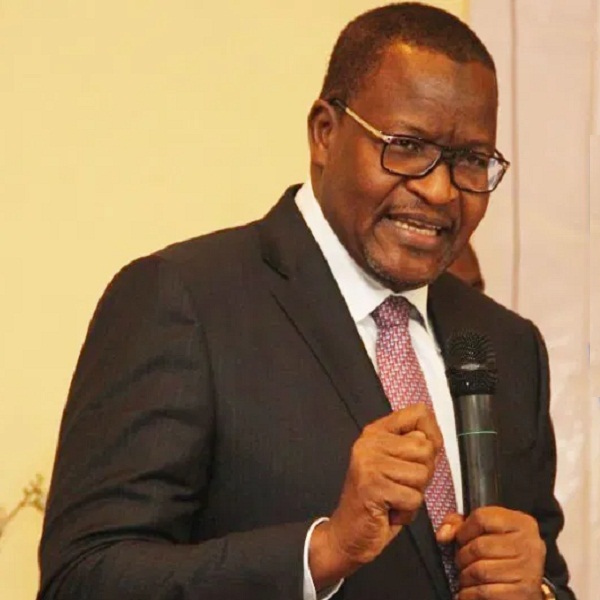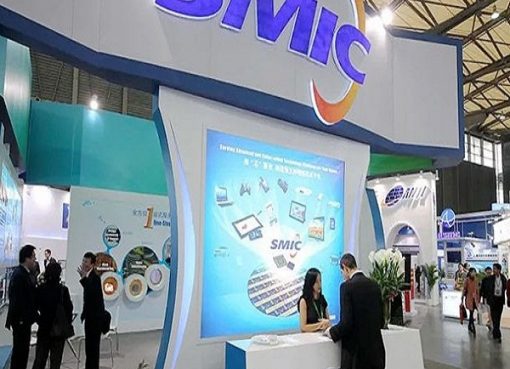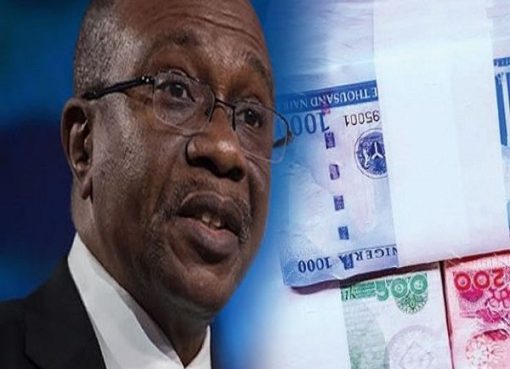For Nigeria to achieve its growth forecast, the information and communication technology (ICT) sector will remain a key driver in the second half, reports
The Bretton Woods Institution raised Nigeria’s Gross Domestic Product (GDP) growth forecast to 1.8 per cent having earlier predicted a 1.1 per cent growth for the country in January.
The Nigerian Communications Commission (NCC) said it generated N150 billion in spectrum revenue for the Federal Government between January and May this year. The revenue exceeded its N36 billion projected revenue from spectrum licence fees for the year and represented over 400 per cent increase in revenue budget performance in respect of spectrum fees generated within the period under review.
The second half of this year promises to be full of activities in the telecom sector as some of initiatives taken during the first half of the year would begin to take shape and impact on the economy.
Bracing for 5G, spectrum cash
Resistance from the literate, half literate and untutored to the deployment of 5G technology continued through the first half of this year but following the Senate investigative hearing which gave the technology a clean bill of health, the NCC took a major regulatory step by inaugurating a committee to develop the Information Memorandum (IM) for the auction of 3.5 gigahertz (GHz) spectrum band which will be used for early deployment of 5G services.
The Commission is expected to harvest cash from the sale of spectrum at the end of the works of the Committee on IM.
Its Executive Vice Chairman/CEO, Prof. Garba Danbatta, inaugurated the 18-member Committee in Abuja with NCC’s Executive Commissioner, Technical Services, Ubale Maska as Auction Adviser while the Director, Spectrum Administration at NCC, Oluwatoyin Asaju, is the Committee Chairman.
Danbatta said aside developing the IM for auctioning of C-band spectrum for 5G deployment, the Terms of Reference (ToR) of the committee included the development of an award process to be used pursuant to which the grant of spectrum licences may be made.
The IM defines the process that the Commission has decided to adopt for the auctioning of the 3.5GHz spectrum band. It will provide information on the telecoms market, details of the spectrum to be made available, the pre-qualification process, the auction process and indicative timetable.
Other ToRs for the committee included the auctioning of the C-band spectrum for 5G deployment in line with the award process as well as report regularly/fortnightly to the EVC through the Office of the Executive Commissioner, Technical Services of the Commission on the progress made by the Committee.
He said the NCC has committed enormous resources to ensure harmonised spectrum is secured and released timely for present and future deployment of services that will underpin the fourth industrial revolution, including International Mobile Telecommunication (IMT-2020) services in recognition of relevant provisions of the Nigerian Communication Act (NCA-2003) and its strategic plan for effective communications resource management, facilitating broadband penetration and improving Quality of Service (QoS) amongst others.
He said the Commission had ensured the participation of relevant workers in international fora, especially in the International Telecommunication Union Radio Telecommunication Sector (ITU-R) study groups, to enable the allocation of strategic spectrum to IMT services, especially IMT 2020, which, he said, had been in the front burner in the last two ITU-R study cycles towards World Radio Communication Conference (WRC-15 & WRC-19).
“Arising from these efforts, which include engagements with relevant governmental and non-governmental organisations during preparatory meetings at National, Regional and Continental level, we have been able to secure harmonised frequencies for 5G deployment in Nigeria,” he said.
He, however, stated where NCC desired premium spectrum such as the 3.5GHz with good propagation characteristics suitable for capacity and coverage with good device ecosystem but did not have sufficient allocation, “we put in extra efforts and secured additional 160MHz in the 3.5GHz band by making huge commitment of resources to secure additional Spectrum from Nigerian Communication Satellite Limited (NigComSat),” culminating in a recent Memorandum of Understanding (MoU) between NCC and NigComSat.
“Having put in these efforts and resources to secure, among others, contiguous Spectrum in a premium band like the 3.5GHz band that is being adopted as the best Spectrum for early deployment of 5G with about 70 per cent of 5G global deployment so far, it has become imperative to immediately re-purpose the 3.5GHz band in Nigeria for auction in accordance with best practices.
“In view of this, Danbatta said NCC Management deemed it necessary to constitute the committee with clear ToRs, adding that its members are expected to demonstrate strong commitment required to carry out these tasks and in a timely manner,” he said.
The EVC urged the committee to consider benchmarking its activities against other countries where 5G has been successfully deployed through successful auction of relevant spectrum band like 3.5GHz.
Asaju as the Chairman of the Committee, agreed with the EVC on the MoU with NigComSat. He said the Commission had, in line with the NCA- 2003, filled request for bulk allocation of 380 MHz bandwidth (3.52-3.9) GHz in the 3.5 GHz band from National Frequency Management Council (NFMC).
Assuring the EVC of the Committee’s readiness to deliver on its ToR, Asaju said the outcome of the actions will, no doubt, form the basis and put NCC on right pedestal for 5G deployment in Nigeria.
The Executive Commissioner, Technical Services of the Commission, Engr Ubale Maska, who doubles as the Auction Adviser, assured the EVC that the Committee will deliver on its mandate, noting, however, that work of the Committee is without prejudice to the approval of the National Frequency Management Council (NFMC), which, he said, must be in place before 5G deployment can take commence in the country.
Licence structure review
The NCC had during the first half of the year initiated the process for reviewing existing licensing structure in the telecoms industry, global trends and the dynamics in the global ICT ecosystem.
To this end, an in-house Standing Committee has been put in place to carry out the task.
Inaugurating the Committee, Danbatta, said the need for the review was informed by the wide range of technological advances, convergence of technologies and services which have characterised the global telecoms space over the years, and which impact is increasingly being experienced.
He said the licence structure is almost 20 years old, hence the need for an urgent review of existing licence patterns to reflect new licensing trends in line with international standards while providing opportunities for improved revenue for the government.
“Therefore, it is evidently clear that this Standing Committee, drawn up from competent hands in various departments of the Commission, is perfectly suited and capable of addressing the enormous task of reviewing the existing license structure of telecom licensees in Nigeria,” he said.
He said the work of the Standing Committee would be carried out in phases, adding that effective delivery of the Committee’s task will help the Commission to institute a process, which will culminate in the review of the terms and conditions of the various licence categories. These, he said, would include licensing fee, as well as identification of the limitations of the various licence categories, with a view to clearly determining licenses that should be phased out or amended.
Danbatta outlined management’s seven-point deliverables from the Committee to include a comprehensive review/report on existing licenses; report and recommendations on consultative fora; and report on recommended new license undertakings.
Others include a report on recommended amendment to licence fees and durations; a report on benchmarking of licence with similar jurisdictions, a report on the impact of certain licences on other licence holders. The Committee is also expected to recommend solutions as well as develop updated regulatory framework for new and amended licences as the case may be; and a final report on the project with all recommendations.
The Director, Licensing and Authorisation, NCC and Chairman of the Committee, Mohammad Babajika, gave assurance about the Committee’s resolve to deliver on the terms of their assignment.
At the end of the Committee’s assignment, and following due consultations with industry stakeholders, the Commission envisages a new draft framework for new and amended licenses.
MTN’s N640b cash for broadband
MTN Nigeria at the twilight of the first half of the year said it had set aside N640 billion, about $1.5 billion, over the next three years, to expand broadband access across the country.
It said the plan aligned with the Federal Government’s 2020-2025 National Broadband Plan (NBP) and in support of MTN Group’s strategy, Ambition 2025: Leading Digital Solutions for Africa’s Progress.
The NBP is designed to deliver data download speeds across Nigeria, a minimum of 25megabytes per second (Mbps) in urban areas, and 10Mbps in rural areas, with effective coverage available to at least 90 per cent of the population by 2025 at a price not more than N390 per 1GB of data (two per cent of median income or one per cent of minimum wage. About $5billion would be required to finance the ambitious project.
Group President, Ralph Mupita, who spoke after a visit to Abuja and Lagos after meeting a number of key stakeholders, said Nigeria is one of the group’s most important markets.
“We have a proud history of partnering with Nigeria and Nigerians to drive faster and more inclusive growth through digital transformation,” Mupita said.
He said MTN Group’s plans to sell 14 per cent of MTN Nigeria to Nigerian investors were well advanced and that this would happen as soon as conditions were conducive. MTN Nigeria, in which MTN Group has a 78.8 per cent stake, sought to have the largest retail shareholder base on the Nigerian Exchange (NGX), where it has a market capitalisation of N3.4 trillion (S$8.2 billion).
Infrastructure expansion
With quality of service (QoS) sinking at the beginning of the first half of the year, it is obvious that more investment is needed in the sector despite local and foreign direct investment (FDI) in the sector reaching about $80billion.
Though infrastructure spend has led to increase in the number of base transceiver stations (BTS) deployment from 30,000 to 54,460, the figure is still a far cry the 80,000 BTS required for effective coverage of the country’s huge population and land mass.
The BTS consist of third generation (3G) and fourth generation (4G) while Fibre Optic Transmission cables expanded from 47,000km to 54,725km in the last five years, resulting in improved broadband/telecoms service delivery.
Danbatta said the effective regulatory regime put in place by the leadership of the Commission has resulted in increased deployment of infrastructure by telecoms operators, which in turn, helped to improve broadband penetration and other related service delivery in the telecoms industry.
“The BTS, fibre optic cables and other related infrastructure are central to the provision of improved service experience for Nigerians by their respective telecoms service providers,” he said, adding that the licensed Infrastructure Companies (InfraCos) are also expected to add 38,296km to optic fibre cables when they commence full operations.
In recognition of the tremendous economic growth opportunities afforded by the deployment of broadband and its associated technologies, Danbatta said the Commission has positioned itself in government’s drive for a digital Nigeria, as contained in the NBP, the National Digital Economy Policy and Strategy (2020-2030) and the Strategic Management Plan (2020-2024) of the Commission.
“The Commission will continue to put in its best in the discharge of its mandates, especially in facilitating the deployment of broadband, which is central to diversifying the Nigerian economy and national development. Also, it is our belief that the communications industry, under the leadership of the Ministry of Communications and Digital Economy, will experience more quantum leaps and retain its current leadership role in the telecommunications space,” he said.
Twitter, Facebook, others for registration
During this second half of the year, the Federal Government is expected to enforce its directive to the National Broadcasting Commission (NBC) to register over the top (OTT) service providers.
The Federal Government had descended on the micro blogging platform, Twitter, suspending its operation indefinitely. Though the government’s decision was said to be controversial, the government had argued that the platform had turned itself to the megaphone of secessionist agitators.
The suspension came days after Twitter pulled down the tweet of President Muhammadu Buhari threatening to speak the language criminals understand to them.
Though the ban still subsists, people desperate to use the platform have sought and got relief from Virtual Private Network (VPN) to do so.
Micro, small and medium enterprises (MSMEs) have taken a great hit from the ban while Twitter, with over 40 million users in the country, may have also incurred losses too.
Twitter has extended the olive branch to the Federal Government in response of which the government has constituted its team to meet with Twitter.
With the olive branch from Twitter, the Federal Government has assembled a team to meet with its management to resolve the issue amicably but the government has not backed down on its resolve to register OTTs.
Source: Nation










